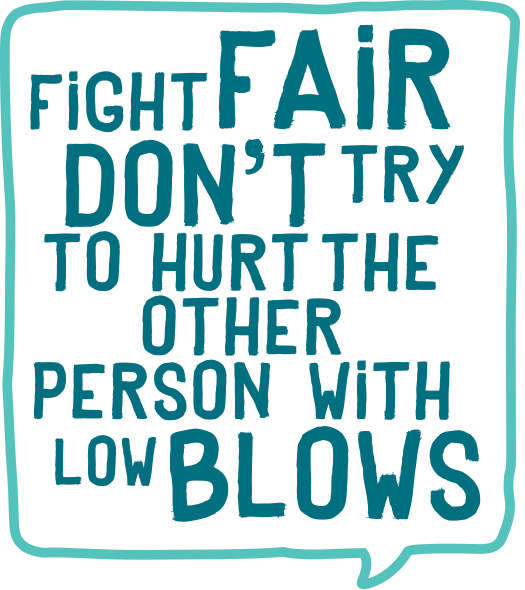Resolving conflict
Resolving conflict can be really hard – no one likes arguing with people they care about, and it can be really difficult to communicate what you want, and listen to what the other person wants without getting upset.
A useful tool to use when trying to resolve conflict are ‘I’ statements.
‘I’ statements are a way of keeping communication on track. When you use ‘I’ statements there is no blame. This means the other person is more likely to hear and respond to your concerns rather than getting angry or defensive.
‘I’ statements also allow you take responsibility for your feelings and your part in the situation. They allow you to clearly communicate the impact of another person’s behaviours or actions on you, and say to them clearly what you want from them.
Using ‘I’ statements:
Use ‘I’ not ‘You’
I feel…
I think…
When I am…
Explain the problem BUT focus on behaviour not the person
When I think I’m not listened to…
When I feel like someone is yelling at me…
Say how you are affected by the problem and how it made you feel
Because it makes me feel sad…
Because it makes me feel embarrassed…
Say what you want to happen
And from now on I want…
I would like…
I need to…
Try not to use words that are accusing or judgemental like ‘should’, ‘ought’, ‘must’ and ‘have to’.
Example
I feel really hurt when you stop talking to me and I don’t even know what I have done…. because it stresses me out and I feel bad about myself. I know you are probably just having a bad day but don’t take it out on me. From now on if you are upset about something I want you to talk to me or take time on your own to sort it out, don’t just stop talking to me.
